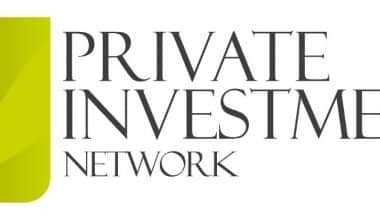Brokerage fees are charges levied by full-service brokers, discount brokers, or internet brokerages for their financial activity in order to grow and maintain your account.
Broker account expenses should be considered whether you are an active or passive investor. Brokerage firms are classified into two types: full-service and cheap. The distinctions between the two, as well as the fees they demand, are significant. So, how much does it cost to hire a broker? Here’s a quick rundown of how a brokerage fee operates for both types of firms.
What is a Brokerage Fee?
Brokerage fees are what a broker charges for various services such as premium research and investing data subscriptions or additional trading platforms. Some even demand maintenance and inactivity fees, but with the appropriate broker, you may avoid paying these brokerage fees.
Finding the correct broker can make a significant impact in the long run; fees can significantly reduce your investment returns. It’s critical that you understand what you’re paying, whether it’s baked into the funds you’ve chosen as an expense ratio, charged as a brokerage fee on your investment account, added on as a stock trading commission when you buy or sell, or levied by an advisor who is assisting you in sorting it all out.
How a Brokerage Fee Works
Because there are so many various sorts of brokerage fees, it’s important to understand how they’re implemented and what firms can and cannot do in terms of fees. Brokers have the authority to collect fees for expenditures incurred in connection with your transactions or the services they provide.
Brokerage fees must be “fair and reasonable” in order to comply with the Securities and Exchange Commission (SEC). Each fee can differ depending on an individual investor’s circumstances and the fee in question.
Brokerage fees can be levied per transaction, monthly, quarterly, or annually, depending on the method used and the firm with whom you work. Schwab Intelligent Portfolios, for example, does not charge an advising fee or commissions. However, its Premium account has a one-time $300 planning fee and a monthly advice fee of $30. Vanguard charges a $20 yearly account service fee for accounts with less than $50,000 in Vanguard assets or less than $10,000 in Vanguard ETFs and mutual funds.
Types of Brokerage Fee
When considering brokerage fees, keep in mind the various ways that firms provide services, such as:
- Ful-Service
- Discount
- Online
#1. Full-Service Brokerage Fee
Full-service brokers or financial planners may charge a fee for their services rather than charging by the transaction, or they may work on commissions depending on the financial products offered. The full-service brokers give expert advice and customized services based on the needs of each investor. Because full-service brokers use humans rather than robo-advisors, fees for personalized advice tailored to your unique portfolio are typically higher.
Depending on your broker, you may pay a yearly fee and commissions ranging from less than 1% to more than 2% of your entire assets under management (AUM). Individual trades may also incur a fee, depending on the security being managed, and you may be required to maintain a certain minimum amount to open or keep your account.
#2. Discount and Online Brokerage Fee
While a full-service broker handles all of your money moves, a cheap brokerage allows you to start these transactions yourself. The cost of trading is low or nonexistent, and the account opening threshold is low. You can sometimes start with as little as $0.
Many bargain brokers, such as TD Ameritrade, which was recently acquired by Charles Schwab, and Fidelity, are well-liked by ordinary investors.
Because many inexpensive brokerages are also online brokerage firms, you can expect the same type of fees—or none at all—from both of these platforms.
Typical Brokerage and Investment Fees
In addition to the brokerage fees mentioned above, you may incur the following charges:
- A trade commission: often known as a stock trading fee, is a brokerage fee levied when you purchase or sell stocks. Other assets, such as options or exchange-traded funds, may also require commissions or fees when purchased and sold.
- Mutual fund transaction fee: This is another brokerage fee imposed when you buy and/or sell mutual funds.
- Expense ratio: An yearly fee levied by mutual funds, index funds, and exchange-traded funds as a proportion of your investment in the fund.
- Sales charge: A sales charge or commission given to the broker or salesperson who sold the mutual fund.
- Management or advisory fee: A percentage of assets under management paid to a financial advisor or robo-advisor by an investor.
- 401(k): A 401(k) fee is an administrative fee that is often passed on to plan participants by the employer.
Reducing Brokerage Fees To Zero.
Investors can save money on account maintenance fees by comparing brokers, services offered, and fees. Investing in no-load mutual funds or fee-free investments can help you avoid paying per-trade fees. It is critical to read the tiny print or fee schedule and to inquire about any fees imposed.
Many online platforms, such as Robinhood, now provide $0 trading in a wide range of stocks and ETFs (as well as many others that have since joined the commission-free movement). The elimination of outright brokerage fees for trades has resulted from fierce competition, which has resulted in fee reduction. Instead, these firms profit by selling your order flow or lending your stock positions to short sellers.
Fees for money management have also been reduced by roboadvisors, which utilize algorithms to automatically construct and maintain an efficient investment portfolio. These services often charge significantly less than a human advisor, with some charging as little as 0.25 percent to 0.50 percent each year based on assets held.
Brokerage Fees’ Influence on Investment Returns
Even minor fees might have a significant impact on your overall investment returns.
The Securities and Exchange Commission of the United States provided a comparison of a $100,000 investment portfolio with a moderate 4% annual return over 20 years with recurring fees of 0.25 percent, 0.5 percent, and 1 percent. The 0.5 percent fee account was $10,000 less than the 0.25 percent fee account after 20 years. The 1% fee account was valued at roughly $30,000 less than the 0.5% fee account.
That’s tens of thousands of dollars an investor may have saved merely by lowering their overall fee load.
Brokerage Fee Structure Advantages and Disadvantages
While investors should generally choose lower-cost investing options, the fact that a broker’s fees are higher than those of its competitors should not be a reason to avoid it.
Though fees may be a turnoff for some investors, aggressive day traders may be ready to pay more for access to more investments and trading tools.
Long-term investors should think along the same lines. You might be willing to pay more for more extensive advice.
According to Mizer, an active investor may require a lot more resources for fundamental and technical analysis, such as previous financial performance, earnings estimates, and study on competition and industry dynamics.
Fees and additional expenses may eat away at your principle, but if you’re paying for goods that help you make smarter investment decisions, you’ll almost certainly come out ahead.
Tips for Lowering Your Brokerage Fees
Being financially educated is the best approach to lowering your fees. This way, you will be aware of your expenses and will be able to better plan for your financial future. Many people do not plan ahead of time and are surprised when they notice large, unexpected fees on their financial statements.
When investors understand the fees associated with their accounts and assets, they may make more cost-effective decisions. Here are some suggestions for lowering your brokerage fees:
- Select lower-cost investing options: Many investors are unaware that mutual funds have an annual expense ratio fee. Exchange-traded funds, or ETFs, are another option for lowering this cost because they have lower expense ratios.
- Read the small print: Brokerages must disclose all fee-related information, so study the fine print before investing.
- Use commission-free investments: Brokers may charge varying degrees of fee on certain investments. For example, a company’s proprietary fund may be commission-free, whereas a competitor’s fund charges a fee. Choose the commission-free alternative whenever possible.
- Avoid assets with wide spreads: While spreads cannot always be avoided, keeping an eye on them can help you choose investments with narrower spreads.
Conducting Your Own Research
Most investors do not bother reading Securities and Exchange Commission (SEC) filings, however, SEC filings are open to the public, and the information contained inside them is equivalent to taking an open book test. You will be given the answers. In contrast to press releases, a public company’s SEC filings must reflect the facts. This makes stock research pretty simple.
Pay close attention to industry trends as well. If fast-casual food establishments that provide natural and organic foods are popular, go with the trend rather than against it. Do your homework to find the best of the breed. You don’t even have to go that deep. If the broader market is hot, revenue growth will be the primary driver of stock price rise. In a bull market, investors and traders prefer revenue growth. If the overall market remains chilly, net income growth and a strong balance sheet will be critical to success. In these conditions, investors and traders prefer to seek protection through dividends and share buybacks.
Is It Compulsory to Pay a Brokerage Fee?
Historically, most investors and traders had to pay fees to their brokers in order to execute trades and keep their accounts open. With the introduction of Internet-based trading, online account management, and severe rivalry among brokerage firms, most stock and ETF trades now have no fees on many platforms.
What Is the Average Brokerage Fee for a Real Estate Transaction?
Realtors and real estate brokers often charge between 5% and 6% of the selling price of a home. This is frequently shared between the seller’s and buyer’s agents. Some bargain real estate brokerages may charge a lesser fee or provide a fixed-fee service instead.
What Distinguishes a Commission from a Brokerage Fee?
By charging their clients for a variety of goods and services, brokers make money. The majority of their expenses, which can comprise a variety of brokerage fee kinds, including commissions for trading, but not exclusively, fall under this general heading. Therefore, commission costs are really just one kind of brokerage fee.
Why Do I Have to Pay a Brokerage Fee?
Any commissions or fees that your broker charges you are referred to as brokerage costs. They are typically charged if you purchase, sell, or complete any negotiations or delivery orders for shares or other investments. These costs are also known as broker fees. Additionally, some brokerages charge for consultations.
Do Brokers Pocket Your Cash?
Though it is uncommon, brokers can undoubtedly take your money. Brokers are more likely to lead you into investments that will profit them or that they wouldn’t make for themselves. They essentially risk with your funds.What Occurs if Brokerage Fees Are Not Paid?
Broker fees do not simply disappear if they are not paid. The cost would then be borne by the structure or landlord, possibly increasing your monthly rent. Therefore, if you stay for longer than a year, you can end up shelling out what would normally be one broker’s charge several times.
Which Brokerage Cost Is Ideal?
A brokerage firm may charge a variety of prices for its services. While some businesses may bill a fixed rate for their services, others could bill a percentage of the total transaction value. Brokerage commissions typically range between 1% and 2% of the overall transaction value.
Conclusion
If you are impulsive and/or unwilling to conduct your homework, a full-service broker should be considered. A discount broker, which allows you to conduct trades but does not provide investment advice, is a superior alternative.
Brokerage Fee FAQs
What is a reasonable brokerage fee?
The average fee for a full-service broker is $150 per transaction. This is substantially lower than in the past, but it is still far higher than bargain brokers, where a transaction costs about $10 on average. You pay a premium for research, knowledge, and guidance at a full-service broker.
How much percentage do stock brokers take?
A full-service financial advisor’s average stockbroker commission percentage is 1% of the assets under control.
Why are brokerage fees so high?
Brokerage is often levied on each transaction enabled by the trading platform. The brokerage charged by an intraday trader with a high volume of trades might be substantial. As a result, because there are more transactions in intraday trading, the brokerage is greater.
Why do you need a broker to buy stocks?
When trading stocks, you will almost always need to employ a broker to place your orders on an exchange. While more expensive, a full-service broker provides experienced investment analysis, advice, and commentary, as well as comprehensive financial planning.






